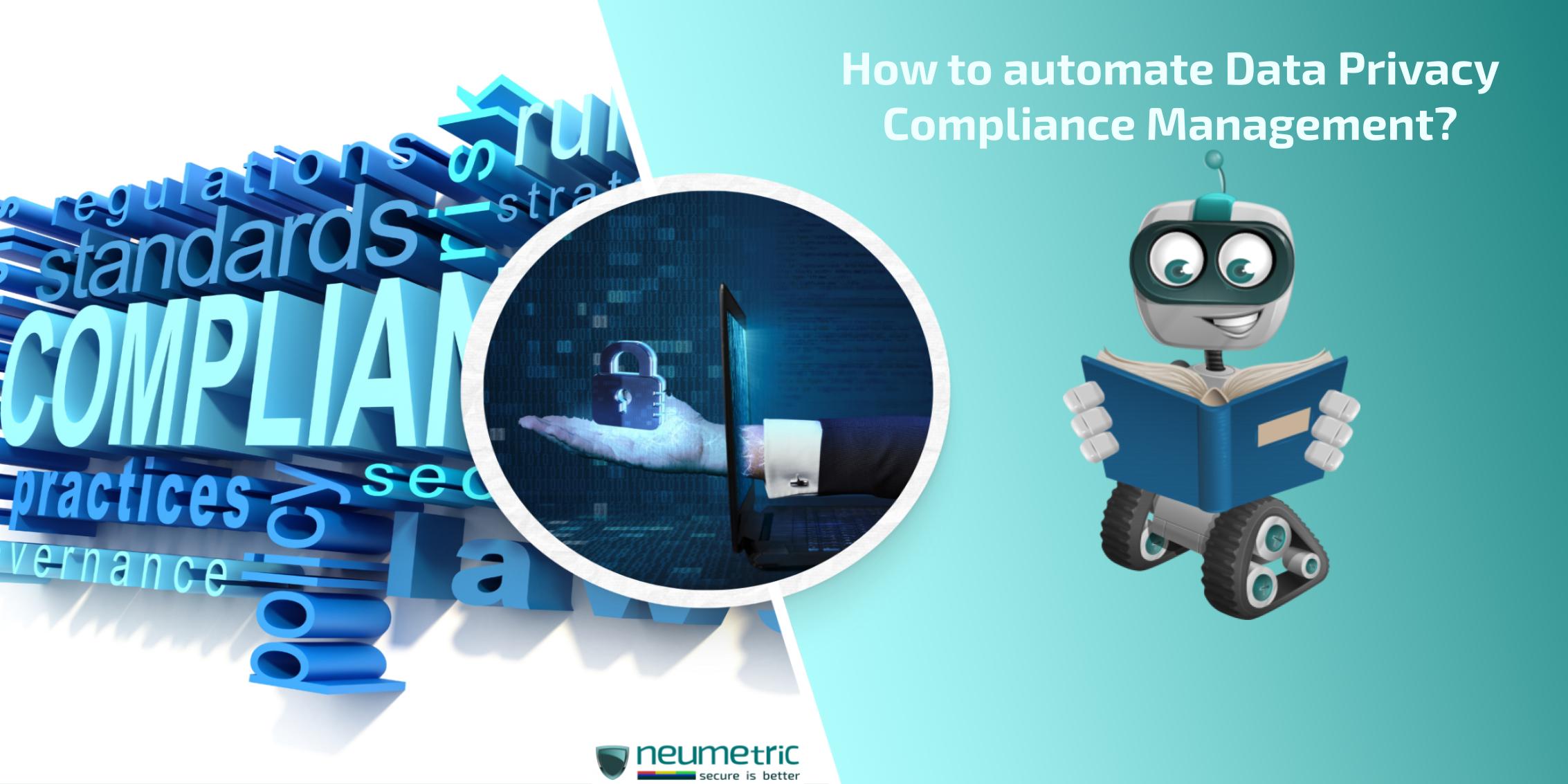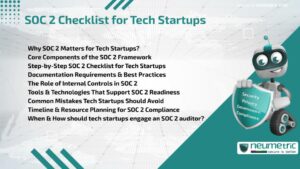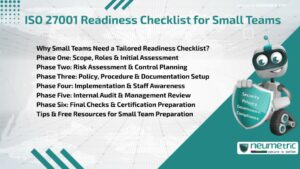Table of Contents
ToggleThe Escalating Urgency of Data Privacy Compliance Management
In the vast digital expanse, where data flows like an electric current, the need for robust data privacy compliance management has become an existential imperative. In an age where sensitive information is a precious commodity & a potential liability, organizations must navigate a complex web of regulations, industry standards & ever-evolving cyber threats. Failure to comply with data privacy laws & best practices can have severe consequences, ranging from crippling fines & legal battles to irreparable reputational damage & loss of consumer trust.
Amidst this dynamic landscape, data privacy compliance management has emerged as a critical cornerstone for organizations of all sizes & across all industries. Regulations such as the General Data Protection Regulation [GDPR], the California Consumer Privacy Act [CCPA] & the myriad of other national & international data privacy laws have ushered in a new era of accountability, where the protection of sensitive information is no longer a choice but a fundamental obligation.
Challenges of Data Privacy Compliance Management
Achieving & maintaining data privacy compliance is a complex endeavor that requires a multifaceted approach. It involves a deep understanding of constantly evolving regulations, the implementation of robust data governance policies & the establishment of stringent access controls, all while ensuring business continuity & operational efficiency.
Traditional manual processes & ad-hoc solutions are no longer sufficient to navigate the intricate web of data privacy compliance requirements. The sheer volume of data, the complexity of regulations & the ever-changing threat landscape demand a more sophisticated & scalable approach – one that harnesses the power of automation.
Limitations of Manual Data Privacy Compliance Management
Manual approaches to data privacy compliance management are fraught with limitations & vulnerabilities. Human error, lack of scalability & the inability to keep pace with the rapid evolution of regulations & data landscapes can lead to gaps in compliance, potentially exposing organizations to significant risks.
Furthermore, manual processes are often time-consuming, resource-intensive & prone to inconsistencies, making it challenging to maintain a consistent & comprehensive view of an organization’s data privacy compliance posture. In a fast-paced digital world, where agility & responsiveness are paramount, manual processes simply cannot keep up.
Embracing Automation: The Future of Secure & Compliant Data Management
Automation offers a transformative solution to the challenges of data privacy compliance management, enabling organizations to streamline processes, enhance accuracy & achieve a level of agility & scalability that manual approaches simply cannot match. By leveraging advanced technologies, such as artificial intelligence [AI], machine learning [ML] & automated workflows, organizations can fortify their defenses against data privacy breaches & ensure continuous compliance with evolving regulations.
Benefits of Automated Data Privacy Compliance Management
- Increased Efficiency & Scalability: Automated systems can process vast amounts of data, consistently apply complex rules & policies & scale seamlessly as data volumes & regulatory requirements evolve, ensuring a consistent & comprehensive approach to compliance, even in the face of exponential data growth.
- Enhanced Accuracy & Reduced Human Error: By minimizing manual intervention & leveraging advanced technologies, automated systems can significantly reduce the risk of human error, ensuring greater accuracy & consistency in data privacy compliance processes, minimizing the potential for costly mistakes.
- Continuous Monitoring & Real-Time Insights: Automated systems can continuously monitor data flows, access patterns & potential violations, providing real-time insights & alerts that enable organizations to proactively address compliance issues before they escalate into full-blown breaches.
- Streamlined Reporting & Auditing: Automated systems can generate comprehensive reports & audit trails, enabling organizations to demonstrate compliance, respond to regulatory inquiries & maintain transparency throughout the data privacy compliance lifecycle, fostering trust with regulators, customers & stakeholders.
- Improved Risk Management: By automating key processes such as data classification, access controls & incident response, organizations can better manage & mitigate risks associated with data privacy compliance, reducing the likelihood of breaches & ensuring the protection of sensitive information, safeguarding their reputation & avoiding costly penalties.
- Cost Optimization: While implementing automated data privacy compliance management solutions may require an initial investment, the long-term cost savings & operational efficiencies gained can significantly outweigh the upfront expenses, making automation a strategic investment in organizational resilience & growth.
Key Components of Automated Data Privacy Compliance Management
Effective automated data privacy compliance management typically involves the integration of several key components, forming a comprehensive & holistic approach to data protection & regulatory adherence:
- Data Discovery & Classification: Automated systems can scan & classify data assets across an organization’s entire data landscape, identifying sensitive information & applying appropriate access controls & protection measures, ensuring that no critical data slips through the cracks.
- Policy & Workflow Automation: Automated workflows & policy enforcement mechanisms can ensure that data handling processes adhere to defined privacy policies & regulatory requirements, minimizing the risk of non-compliance & fostering a culture of data stewardship throughout the organization.
- Access Control & Monitoring: Automated access controls & continuous monitoring capabilities can track & manage data access, detect potential violations & trigger appropriate remediation actions, ensuring that sensitive data is properly protected & only accessible to authorized individuals or systems.
- Incident Response & Reporting: Automated incident response & reporting tools can streamline the process of detecting, responding to & documenting data privacy incidents, enabling organizations to comply with regulatory reporting requirements, minimize the impact of breaches & learn from past incidents to strengthen their defenses.
- Compliance Dashboards & Analytics: Comprehensive dashboards & analytics tools can provide real-time visibility into an organization’s data privacy compliance posture, enabling data-driven decision-making, identifying areas for improvement & facilitating continuous refinement of compliance strategies & processes.
- Integration with Existing Systems: Modern automated data privacy compliance management solutions are designed to seamlessly integrate with an organization’s existing technology infrastructure, leveraging data from various sources, including databases, applications & cloud platforms, to provide a unified & holistic view of data privacy compliance.
Overcoming Challenges & Embracing Automation
While the benefits of automated data privacy compliance management are clear, the path to successful implementation is not without its challenges. Organizations must navigate a complex landscape of technology choices, data integration complexities & cultural resistance to change. However, by proactively addressing these challenges, organizations can unlock the full potential of automation & position themselves as leaders in the realm of data privacy & security.
Choosing the Right Automation Solution
The market for automated data privacy compliance management solutions is rapidly evolving, with a wide range of offerings from established vendors & innovative startups. Selecting the right solution requires a thorough evaluation of an organization’s specific needs, data landscape & existing technology infrastructure.
It is essential to consider factors such as scalability, interoperability & the ability to integrate with existing systems & data sources. Additionally, organizations should evaluate the vendor’s expertise, support capabilities & long-term product roadmap to ensure a sustainable & future-proof solution that can adapt to evolving regulations & cyber threats.
Addressing Data Integration Challenges
Automated data privacy compliance management relies heavily on the ability to access & integrate data from various sources, including databases, applications & cloud platforms. Data silos, inconsistent data formats & legacy systems can pose significant challenges in this regard.
Organizations must invest in data integration strategies, such as implementing data virtualization technologies or establishing data lakes, to ensure that automated systems have access to a unified & consolidated view of data assets. By breaking down data silos & harmonizing data formats, organizations can unlock the full potential of their automated data privacy compliance management solutions.
Fostering a Culture of Data Privacy Compliance
Successful automation of data privacy compliance management requires more than just technology – it demands a cultural shift within the organization. Employees at all levels must embrace the importance of data privacy & understand their roles & responsibilities in maintaining compliance.
Effective training programs, clear communication & strong leadership support are essential for fostering a culture of data privacy compliance & ensuring the successful adoption of automated solutions. Organizations must cultivate an environment where data privacy is not just a regulatory obligation but a core organizational value, ingrained in the fabric of their operations & decision-making processes.
Continuous Improvement & Adaptation
In the ever-evolving digital landscape, data privacy compliance is not a one-time endeavor but an ongoing journey of continuous improvement & adaptation. As new regulations emerge, cyber threats evolve & data volumes grow, organizations must remain vigilant & proactive in refining their automated data privacy compliance management strategies.
Regular assessments, incorporating feedback from stakeholders & leveraging advanced analytics can help organizations identify areas for improvement, streamline processes & stay ahead of emerging trends & challenges. Embracing a mindset of continuous learning & adaptation is key to maintaining robust data privacy compliance in the face of constant change.
Conclusion
In the vast digital expanse, where data flows like an electric current & cyber threats lurk in the shadows, mastering the art of data privacy compliance management is no longer an option – it’s an existential imperative. Automated solutions offer a powerful & scalable approach to navigating the intricate web of regulations, mitigating risks & fostering a culture of data stewardship within organizations.
By embracing automation, organizations can streamline their data privacy compliance processes, enhance accuracy & gain real-time visibility into their compliance posture. This not only reduces the risk of costly fines & legal battles but also strengthens customer trust & reinforces an organization’s reputation as a responsible custodian of sensitive data.
However, the journey towards automated data privacy compliance management is not without its challenges. Organizations must carefully evaluate their unique needs, data landscapes & existing infrastructure to select the right automation solution. They must also address data integration complexities, cultivate a culture that embraces data privacy as a core organizational value & commit to a mindset of continuous improvement & adaptation.
As the digital world continues to evolve at a breakneck pace, the importance of data privacy compliance management will only continue to grow. Automated solutions provide a future-proof & scalable approach, enabling organizations to stay ahead of the curve & adapt to new regulations & emerging threats with agility & confidence.
In this era of big data & heightened privacy concerns, the organizations that embrace automation & prioritize data privacy compliance will not only mitigate risks but also gain a competitive advantage. They will be seen as trustworthy stewards of sensitive information, fostering stronger relationships with customers, partners & stakeholders alike.
The path towards automated data privacy compliance management may present challenges, but the rewards are numerous – from operational efficiency & risk mitigation to increased customer confidence & a reputation for ethical data stewardship. By harnessing the power of automation, organizations can navigate the complex landscape of data privacy regulations with confidence, safeguarding their most valuable asset – the data that fuels their growth & innovation – & paving the way for a more secure & trustworthy digital future.
Frequently Asked Questions [FAQ]
Is automating data privacy compliance management mandatory?
While automating data privacy compliance management is not explicitly mandated by most regulations, it is increasingly becoming a necessity for organizations to effectively manage & demonstrate compliance. Manual processes are often inadequate in the face of growing data volumes, complex regulations & the ever-evolving threat landscape. As data privacy laws & enforcement actions become more stringent, organizations that fail to adopt automated solutions may find themselves at a significant competitive disadvantage & exposed to greater risks of non-compliance.
Can automation completely replace human oversight in data privacy compliance management?
No, automation is not intended to completely replace human oversight in data privacy compliance management. While automated systems can streamline many processes & enhance efficiency, human expertise & oversight are still crucial for making informed decisions, interpreting nuanced compliance requirements & overseeing the overall compliance strategy.
Automated solutions should be viewed as powerful tools that augment & support human decision-making, rather than as a complete replacement for human involvement. A balanced approach that combines the power of automation with the expertise & judgment of skilled professionals is essential for effective data privacy compliance management.
How secure are automated data privacy compliance management solutions?
Reputable automated data privacy compliance management solutions employ robust security measures to ensure the protection of sensitive data. These measures typically include encryption, access controls, secure data transfer protocols & regular security audits & penetration testing.
However, it is essential for organizations to thoroughly evaluate the security posture of any solution they consider & implement additional safeguards as needed. This may include implementing strict access controls, conducting regular security assessments & adhering to industry best practices for data security & privacy.
Can automated data privacy compliance management solutions integrate with existing systems & data sources?
Yes, most modern automated data privacy compliance management solutions are designed to integrate with a wide range of existing systems & data sources, including databases, applications & cloud platforms. However, the degree of integration & the effort required may vary depending on the specific systems & data formats involved.
Organizations should carefully evaluate the integration capabilities of potential solutions & work closely with vendors to ensure seamless integration with their existing technology infrastructure. In some cases, data integration strategies, such as implementing data virtualization or establishing data lakes, may be necessary to facilitate effective integration & data consolidation.





